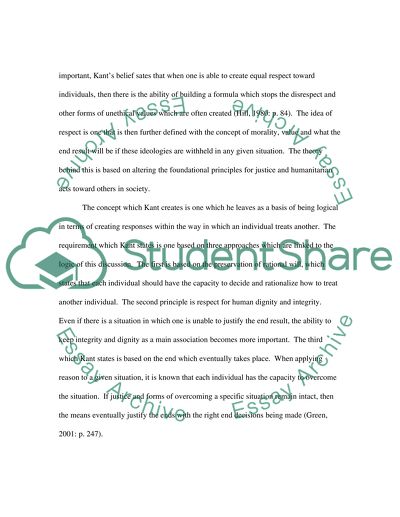Cite this document
(“Defining Reason and Morality in Kant Essay Example | Topics and Well Written Essays - 2000 words”, n.d.)
Retrieved from https://studentshare.org/philosophy/1427306-3-why-according-to-kant-does-reason-require-you-to-ychact-in-such-a-way-as-to-treat-humanity-whether-in-your-own-person-or-i
Retrieved from https://studentshare.org/philosophy/1427306-3-why-according-to-kant-does-reason-require-you-to-ychact-in-such-a-way-as-to-treat-humanity-whether-in-your-own-person-or-i
(Defining Reason and Morality in Kant Essay Example | Topics and Well Written Essays - 2000 Words)
https://studentshare.org/philosophy/1427306-3-why-according-to-kant-does-reason-require-you-to-ychact-in-such-a-way-as-to-treat-humanity-whether-in-your-own-person-or-i.
https://studentshare.org/philosophy/1427306-3-why-according-to-kant-does-reason-require-you-to-ychact-in-such-a-way-as-to-treat-humanity-whether-in-your-own-person-or-i.
“Defining Reason and Morality in Kant Essay Example | Topics and Well Written Essays - 2000 Words”, n.d. https://studentshare.org/philosophy/1427306-3-why-according-to-kant-does-reason-require-you-to-ychact-in-such-a-way-as-to-treat-humanity-whether-in-your-own-person-or-i.


